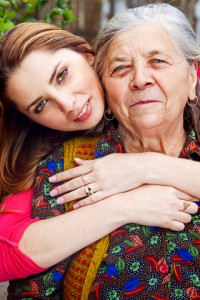Professor Simon Biggs from the University of Melbourne School of Social and Political Sciences spoke at the Better Practice Conference in Adelaide this week. He spoke about human rights and
 ageism in Australia. The human rights perspective has not been brought to bear on ageing much to date and this is especially true of aged care.
ageism in Australia. The human rights perspective has not been brought to bear on ageing much to date and this is especially true of aged care.
Several things struck me about his presentation. Firstly he spoke of “rights holders” and “duty bearers”. The older person is the rights holder and we are the duty bearers who have a duty to uphold or protect the person who holds the right. It made me think of the situation I have face in the past when families and others overwhelm the older person and essentially cajole them into going into aged care. This is a failure of our duty to uphold their right to agency, to choice. Even cognitive impairment does not take away a person’s right to agency, choice.
The other point he made was that we have difficulty with empathy for older people (and this especially true of our relationships with older people with dementia) and we “other ” them. We make them into an “other” who is different, not like “us”. Kitwood referred to the work of Martin Buber who spoke of an “I” “Thou” relationship in which the other person is not made into something different but is recognized as a subject, a person like me. However, when we engage in “othering” we have difficulty with empathy, with recognizing elements of our own experience in the other person treat the person who is old, who has dementia as if they are not like us, have little in common with us, are essentially different to us.
I remember coming to grips with this problem in myself some years ago when I realised that I could not picture these older people as once young, once like me, smooth of face and strong of limb. I concentrated on trying to make this connection and it helped me to engage with the older person as a person with outlooks, perspectives, experiences and feelings like mine, hopes like mine.
Simon Biggs said that empathy is the antidote to othering. What do you think?
